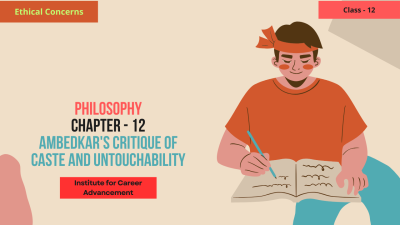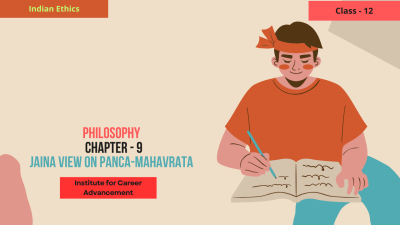Courses


 Compare
Compare
Theories of Punishment are the philosophical foundations behind why and how punishment is administered in society. There are several key theories: Retributive Theory: This theory focuses on the idea of "just deserts," where punishment is seen as a deserved response to the crime committed. It seeks to ensure that the offender faces consequences proportionate to their crime. Deterrent Theory: The goal here is to prevent future crimes by making an example of the offender. The punishment is intended to discourage both the individual and others from committing similar offenses. Rehabilitative Theory: This approach emphasizes reforming the offender, helping them understand the wrongness of their actions, and reintegrating them into society as law-abiding citizens. Preventive Theory: The focus is on preventing future crimes by incapacitating the offender, such as through imprisonment, to ensure they cannot commit further offenses. Restorative Theory: This theory centers on repairing the harm caused by the crime, involving the offender, victim, and community in a process of healing and reconciliation. Issue of Capital Punishment refers to the debate over the use of the death penalty as a form of punishment. Arguments in favor include deterrence, retribution, and the belief that certain crimes warrant the ultimate penalty. Critics argue that it violates human rights, risks executing innocent people, and does not effectively deter crime. The issue remains highly controversial and varies across different legal systems worldwide. শাস্তির তত্ত্বগুলি হল সমাজে কেন এবং কীভাবে শাস্তি দেওয়া হয় তার পিছনে দার্শনিক ভিত্তি। বেশ কয়েকটি মূল তত্ত্ব রয়েছেঃ প্রতিশোধমূলক তত্ত্বঃ এই তত্ত্বটি "ন্যায়সঙ্গত মরুভূমি" ধারণার উপর দৃষ্টি নিবদ্ধ করে, যেখানে শাস্তি সংঘটিত অপরাধের যোগ্য প্রতিক্রিয়া হিসাবে দেখা হয়। এটি নিশ্চিত করতে চায় যে অপরাধীরা যেন তাদের অপরাধের অনুপাতে পরিণতির সম্মুখীন হয়। প্রতিরোধ তত্ত্বঃ এখানে লক্ষ্য হল অপরাধীর উদাহরণ তৈরি করে ভবিষ্যতের অপরাধ প্রতিরোধ করা। এই শাস্তির উদ্দেশ্য হল ব্যক্তি এবং অন্যদের একই ধরনের অপরাধ করা থেকে নিরুৎসাহিত করা। পুনর্বাসন তত্ত্বঃ এই দৃষ্টিভঙ্গি অপরাধীদের সংস্কারের উপর জোর দেয়, তাদের কর্মের ভুল বুঝতে সাহায্য করে এবং আইন-মান্যকারী নাগরিক হিসাবে তাদের সমাজে পুনরায় সংহত করে। প্রতিরোধমূলক তত্ত্বঃ অপরাধীকে অক্ষম করে ভবিষ্যতের অপরাধ প্রতিরোধের দিকে মনোনিবেশ করা হয়, যেমন কারাবাসের মাধ্যমে, যাতে তারা আরও অপরাধ করতে না পারে তা নিশ্চিত করার জন্য। পুনরুদ্ধারমূলক তত্ত্বঃ এই তত্ত্বটি অপরাধী, ভুক্তভোগী এবং সম্প্রদায়কে নিরাময় ও পুনর্মিলনের প্রক্রিয়ায় জড়িত করে অপরাধ দ্বারা সৃষ্ট ক্ষতি মেরামতের উপর কেন্দ্রীভূত। মৃত্যুদণ্ডের বিষয়টি মৃত্যুদণ্ডকে শাস্তির একটি রূপ হিসাবে ব্যবহার নিয়ে বিতর্ককে বোঝায়। পক্ষে যুক্তিগুলির মধ্যে রয়েছে প্রতিরোধ, প্রতিশোধ এবং এই বিশ্বাস যে নির্দিষ্ট কিছু অপরাধের জন্য চূড়ান্ত শাস্তি প্রয়োজন। সমালোচকরা যুক্তি দেন যে এটি মানবাধিকার লঙ্ঘন করে, নির্দোষ মানুষের মৃত্যুদণ্ড কার্যকর করার ঝুঁকি নেয় এবং কার্যকরভাবে অপরাধ দমন করে না। বিষয়টি অত্যন্ত বিতর্কিত রয়ে গেছে এবং বিশ্বব্যাপী বিভিন্ন আইনি ব্যবস্থায় পরিবর্তিত হয়।
0 Lessons
Hours

 Compare
Compare
Ambedkar's Critique of Caste and Untouchability focuses on Dr. B.R. Ambedkar's analysis of the caste system in India and its deep-rooted social injustices, particularly the system of untouchability. Ambedkar, a prominent social reformer and the principal architect of the Indian Constitution, critiqued the caste system for perpetuating inequality, discrimination, and exploitation of the lower castes, especially the Dalits. He argued that caste was not just a social hierarchy but a form of oppression, and untouchability was a tool used to maintain this oppression. Ambedkar advocated for the abolition of caste, the protection of Dalit rights, and the promotion of social equality through legal and social reforms. His work and ideas continue to inspire movements for social justice and human rights in India. আম্বেদকরের 'ক্রিটিক অফ কাস্ট অ্যান্ড আনটচাবিলিটি' বইটি Dr. B.R. কে কেন্দ্র করে রচিত। ভারতে বর্ণ ব্যবস্থা এবং এর গভীর শিকড়যুক্ত সামাজিক অবিচার, বিশেষত অস্পৃশ্যতার ব্যবস্থা সম্পর্কে আম্বেদকরের বিশ্লেষণ। বিশিষ্ট সমাজ সংস্কারক এবং ভারতীয় সংবিধানের প্রধান স্থপতি আম্বেদকর বৈষম্য, বৈষম্য এবং নিম্ন বর্ণের, বিশেষ করে দলিতদের শোষণের জন্য বর্ণ ব্যবস্থার সমালোচনা করেছিলেন। তিনি যুক্তি দিয়েছিলেন যে বর্ণ কেবল একটি সামাজিক শ্রেণিবিন্যাস নয়, নিপীড়নের একটি রূপ এবং অস্পৃশ্যতা এই নিপীড়ন বজায় রাখার একটি হাতিয়ার ছিল। আম্বেদকর বর্ণের বিলোপ, দলিত অধিকারের সুরক্ষা এবং আইনি ও সামাজিক সংস্কারের মাধ্যমে সামাজিক সাম্যের প্রচারের পক্ষে ছিলেন। তাঁর কাজ এবং ধারণাগুলি ভারতে সামাজিক ন্যায়বিচার এবং মানবাধিকারের জন্য আন্দোলনকে অনুপ্রাণিত করে চলেছে।
0 Lessons
Hours

 Compare
Compare
Gender Equality refers to the concept of ensuring that all individuals, regardless of their gender, have equal rights, opportunities, and access to resources. In the context of Class 12, it emphasizes the need for societal, legal, and economic reforms that eliminate discrimination based on gender. This includes promoting equal opportunities in education, employment, healthcare, and political participation, as well as addressing issues like gender-based violence and stereotypes. Achieving gender equality contributes to overall social progress and the well-being of both individuals and communities. লিঙ্গ সমতা বলতে লিঙ্গ নির্বিশেষে সকল ব্যক্তির সমান অধিকার, সুযোগ এবং সম্পদের অ্যাক্সেস নিশ্চিত করার ধারণাকে বোঝায়। দ্বাদশ শ্রেণির প্রেক্ষাপটে, এটি সামাজিক, আইনি এবং অর্থনৈতিক সংস্কারের প্রয়োজনীয়তার উপর জোর দেয় যা লিঙ্গ ভিত্তিক বৈষম্য দূর করে। এর মধ্যে রয়েছে শিক্ষা, কর্মসংস্থান, স্বাস্থ্যসেবা এবং রাজনৈতিক অংশগ্রহণের ক্ষেত্রে সমান সুযোগের প্রচারের পাশাপাশি লিঙ্গ-ভিত্তিক সহিংসতা এবং স্টেরিওটাইপগুলির মতো বিষয়গুলির সমাধান করা। লিঙ্গ সমতা অর্জন সামগ্রিক সামাজিক অগ্রগতি এবং ব্যক্তি ও সম্প্রদায় উভয়ের কল্যাণে অবদান রাখে।
0 Lessons
Hours

 Compare
Compare
This topic explores the perspectives of Mahatma Gandhi and Swami Vivekananda on religious tolerance, focusing on their views of respecting and coexisting with people of different faiths. Both Gandhi and Vivekananda emphasized the importance of understanding and harmony among various religious communities, which they believed was crucial for social peace and national unity. Mahatma Gandhi: Gandhi promoted the idea of Sarva Dharma Sambhava (equal respect for all religions). He believed that all religions lead to the same truth and that religious intolerance is a major cause of human suffering. He practiced and advocated for religious tolerance through his actions, promoting love, peace, and mutual respect among different religious groups. Swami Vivekananda: Vivekananda’s famous speech at the Parliament of the World's Religions in Chicago (1893) highlighted the unity of all religions, urging people to transcend sectarian differences and recognize the shared spiritual essence. He emphasized that true religion promotes self-realization and universal compassion, and thus, respect for all religions is essential for spiritual growth. This topic helps students understand the significance of religious tolerance in building a peaceful and inclusive society. এই বিষয়টি ধর্মীয় সহনশীলতার বিষয়ে মহাত্মা গান্ধী এবং স্বামী বিবেকানন্দের দৃষ্টিভঙ্গি অন্বেষণ করে, বিভিন্ন ধর্মের মানুষের সাথে সম্মান ও সহাবস্থানের বিষয়ে তাদের দৃষ্টিভঙ্গির উপর দৃষ্টি নিবদ্ধ করে। গান্ধী ও বিবেকানন্দ উভয়ই বিভিন্ন ধর্মীয় সম্প্রদায়ের মধ্যে বোঝাপড়া ও সম্প্রীতির গুরুত্বের উপর জোর দিয়েছিলেন, যা তারা বিশ্বাস করতেন যে সামাজিক শান্তি ও জাতীয় ঐক্যের জন্য অত্যন্ত গুরুত্বপূর্ণ। মহাত্মা গান্ধীঃ গান্ধী সর্বধর্ম সম্ভব (সমস্ত ধর্মের প্রতি সমান সম্মান) ধারণার প্রচার করেছিলেন। তিনি বিশ্বাস করতেন যে সমস্ত ধর্মই একই সত্যের দিকে পরিচালিত করে এবং ধর্মীয় অসহিষ্ণুতা মানুষের দুঃখকষ্টের একটি প্রধান কারণ। তিনি তাঁর কর্মের মাধ্যমে বিভিন্ন ধর্মীয় গোষ্ঠীর মধ্যে প্রেম, শান্তি এবং পারস্পরিক সম্মান প্রচারের মাধ্যমে ধর্মীয় সহনশীলতার অনুশীলন ও সমর্থন করেছিলেন। স্বামী বিবেকানন্দঃ শিকাগোতে বিশ্বধর্ম সংসদে (1893) বিবেকানন্দের বিখ্যাত ভাষণ সমস্ত ধর্মের ঐক্যকে তুলে ধরেছিল, মানুষকে সাম্প্রদায়িক পার্থক্যকে অতিক্রম করতে এবং ভাগ করা আধ্যাত্মিক সত্তাকে স্বীকৃতি দেওয়ার আহ্বান জানিয়েছিল। তিনি জোর দিয়েছিলেন যে সত্য ধর্ম আত্ম-উপলব্ধি এবং সর্বজনীন সহানুভূতির প্রচার করে এবং এইভাবে, আধ্যাত্মিক বিকাশের জন্য সমস্ত ধর্মের প্রতি সম্মান অপরিহার্য। এই বিষয়টি শিক্ষার্থীদের শান্তিপূর্ণ ও অন্তর্ভুক্তিমূলক সমাজ গঠনে ধর্মীয় সহনশীলতার গুরুত্ব বুঝতে সহায়তা করে।
0 Lessons
Hours

 Compare
Compare
The Panca-Mahavrata (Five Great Vows) form the core ethical principles of Jainism that guide its followers towards spiritual purity and liberation (Moksha). These vows are taken by Jain monks and nuns and are considered essential for the path of asceticism and non-violence. The five vows are: Ahimsa (Non-violence): The practice of causing no harm to any living being, in thought, word, or deed. Satya (Truthfulness): Always speaking the truth, and avoiding falsehood. Asteya (Non-stealing): Not taking anything that is not willingly given. Brahmacharya (Celibacy or Chastity): Practicing celibacy and abstaining from all forms of sexual activity. Aparigraha (Non-possessiveness): Renouncing attachment to material possessions and limiting one's desires. The Panca-Mahavrata emphasize self-control, compassion, and detachment, aiming to reduce karma and attain spiritual enlightenment. These vows are central to Jain monastic life and help in the pursuit of inner peace and liberation from the cycle of birth and death. পঞ্চ-মহাব্রত (পাঁচটি মহান শপথ) জৈন ধর্মের মূল নৈতিক নীতিগুলি গঠন করে যা এর অনুসারীদের আধ্যাত্মিক বিশুদ্ধতা এবং মুক্তির (মোক্ষ) দিকে পরিচালিত করে। এই ব্রতগুলি জৈন সন্ন্যাসী এবং সন্ন্যাসিনীদের দ্বারা গৃহীত হয় এবং সন্ন্যাস ও অহিংসার পথের জন্য অপরিহার্য বলে মনে করা হয়। পাঁচটি শপথ হলঃ অহিংসা (অহিংসা) চিন্তা, কথা বা কাজে কোনও জীবের কোনও ক্ষতি না করার অভ্যাস। সত্য (সত্য) সর্বদা সত্য কথা বলে এবং মিথ্যা এড়িয়ে চলে। অস্তেয় (চুরি না করা) এমন কিছু না নেওয়া যা স্বেচ্ছায় দেওয়া হয় না। ব্রহ্মচর্য (ব্রহ্মচর্য বা সতীত্ব) ব্রহ্মচর্য অনুশীলন করা এবং সমস্ত ধরনের যৌন ক্রিয়াকলাপ থেকে বিরত থাকা। অপরিগ্রহ (অ-অধিকার) বস্তুগত সম্পত্তির প্রতি আসক্তি ত্যাগ করা এবং একজনের আকাঙ্ক্ষাকে সীমাবদ্ধ করা। পঞ্চ-মহাব্রত আত্ম-নিয়ন্ত্রণ, করুণা এবং বিচ্ছিন্নতার উপর জোর দেয়, যার লক্ষ্য কর্ম হ্রাস করা এবং আধ্যাত্মিক জ্ঞান অর্জন করা। এই ব্রতগুলি জৈন সন্ন্যাস জীবনের কেন্দ্রবিন্দু এবং জন্ম ও মৃত্যুর চক্র থেকে অভ্যন্তরীণ শান্তি ও মুক্তি অর্জনে সহায়তা করে।
0 Lessons
Hours

 Compare
Compare
In the Class 12 curriculum, students explore the fundamental Buddhist principles that guide ethical conduct, mental development, and the path to enlightenment. The key concepts covered include Pancasila, the Eightfold Path, Brahmavihara, and the Bodhisattva's Vows. 1. Pancasila (Five Precepts) Concept: The Pancasila are ethical guidelines or precepts that lay the foundation for moral behavior in Buddhism. They are: To refrain from killing living beings To refrain from stealing To refrain from sexual misconduct To refrain from false speech To refrain from intoxicants that cloud the mind Purpose: These precepts guide individuals towards a life of ethical conduct, fostering harmony and reducing suffering. 2. Eightfold Path Concept: The Eightfold Path is the path to enlightenment and liberation from suffering (Nirvana). It consists of: Right View Right Intention Right Speech Right Action Right Livelihood Right Effort Right Mindfulness Right Concentration Purpose: This path emphasizes wisdom, ethical conduct, and mental discipline, helping individuals overcome suffering and attain Nirvana. 3. Brahmavihara (Four Immeasurables) Concept: The Brahmavihara are four qualities that promote compassion, love, and inner peace: Metta (Loving-kindness) Karuna (Compassion) Mudita (Sympathetic Joy) Upekkha (Equanimity) Purpose: These qualities help develop a mind that is free from attachment, hatred, and delusion, fostering harmony and well-being for all beings. 4. Bodhisattva's Vows Concept: The Bodhisattva’s Vows are pledges taken by those who aspire to attain Buddhahood and help all sentient beings achieve enlightenment. Key aspects include: To save all beings from suffering To attain Buddhahood for the benefit of others To remain in samsara until all beings are liberated Purpose: The Bodhisattva’s Vows represent selfless compassion, emphasizing the importance of working for the enlightenment of all beings, not just oneself. দ্বাদশ শ্রেণির পাঠ্যক্রমে, শিক্ষার্থীরা মৌলিক বৌদ্ধ নীতিগুলি অন্বেষণ করে যা নৈতিক আচরণ, মানসিক বিকাশ এবং আলোকিত হওয়ার পথকে নির্দেশ করে। অন্তর্ভুক্ত মূল ধারণাগুলির মধ্যে রয়েছে পঞ্চশিলা, অষ্টগুণ পথ, ব্রহ্মবিহার এবং বোধিসত্ত্বের শপথ। 1টি। পাঞ্চাসিলা (পাঁচটি উপদেশ) ধারণাঃ পঞ্চশিলা হল নৈতিক নির্দেশিকা বা নিয়ম যা বৌদ্ধধর্মে নৈতিক আচরণের ভিত্তি স্থাপন করে। তারা হলেনঃ জীবন্ত প্রাণী হত্যা থেকে বিরত থাকা চুরি থেকে বিরত থাকতে যৌন অসদাচরণ থেকে বিরত থাকা মিথ্যা কথা বলা থেকে বিরত থাকা মনকে মেঘলা করে এমন নেশা থেকে বিরত থাকা উদ্দেশ্যঃ এই নিয়মগুলি ব্যক্তিদের নৈতিক আচরণের জীবনযাপনের দিকে পরিচালিত করে, সম্প্রীতি বজায় রাখে এবং দুর্ভোগ হ্রাস করে। 2. অষ্টগুণ পথ ধারণাঃ অষ্টগুণ পথ হল জ্ঞানালোক এবং দুঃখ থেকে মুক্তির পথ (নির্বাণ) এর মধ্যে রয়েছেঃ সঠিক দৃশ্য সঠিক উদ্দেশ্য সঠিক বক্তৃতা সঠিক পদক্ষেপ সঠিক জীবিকা সঠিক প্রচেষ্টা সঠিক মননশীলতা সঠিক মনোযোগ উদ্দেশ্যঃ এই পথটি প্রজ্ঞা, নৈতিক আচরণ এবং মানসিক শৃঙ্খলার উপর জোর দেয়, যা ব্যক্তিদের দুঃখকষ্ট কাটিয়ে উঠতে এবং নির্বাণ অর্জনে সহায়তা করে। 3. ব্রহ্মবিহার (চারটি অপরিমেয়) ধারণাঃ ব্রহ্মবিহার হল চারটি গুণ যা করুণা, প্রেম এবং অভ্যন্তরীণ শান্তির প্রচার করেঃ মেট্টা (প্রেমপূর্ণ-দয়া) করুণা (সহানুভূতি) মুদিতা (সহানুভূতিশীল আনন্দ) উপেখা (সমতা) উদ্দেশ্যঃ এই গুণগুলি এমন একটি মনের বিকাশে সহায়তা করে যা আসক্তি, ঘৃণা এবং বিভ্রম থেকে মুক্ত, সমস্ত প্রাণীর জন্য সম্প্রীতি এবং সুস্থতা বজায় রাখে। 4. বোধিসত্ত্বের শপথ ধারণাঃ বোধিসত্ত্বের শপথগুলি তাদের দ্বারা গৃহীত অঙ্গীকার যারা বুদ্ধত্ব অর্জনের আকাঙ্ক্ষা করে এবং সমস্ত সংবেদনশীল প্রাণীকে জ্ঞান অর্জনে সহায়তা করে। মূল বিষয়গুলির মধ্যে রয়েছেঃ সমস্ত প্রাণীকে দুঃখকষ্ট থেকে রক্ষা করা অন্যের উপকারের জন্য বুদ্ধত্ব অর্জন করা সমস্ত প্রাণী মুক্ত না হওয়া পর্যন্ত সংসারে থাকা উদ্দেশ্যঃ বোধিসত্ত্বের শপথগুলি নিঃস্বার্থ সহানুভূতির প্রতিনিধিত্ব করে, কেবল নিজের নয়, সমস্ত প্রাণীর আলোকিতকরণের জন্য কাজ করার গুরুত্বের উপর জোর দেয়।
0 Lessons
Hours

 Compare
Compare
Svadharma (One’s Own Duty): Svadharma refers to the duty that each individual must perform based on their nature, abilities, and stage of life. In the Bhagavad Gita, Lord Krishna emphasizes the importance of following one's own duty, even if it is less glamorous or difficult, as it leads to personal growth and fulfillment. Arjuna is advised to perform his duty as a warrior without hesitation, even in the face of challenges. Niskama-Karma (Selfless Action): Niskama-Karma means performing actions without attachment to the results or outcomes. According to Lord Krishna, one should act with dedication and sincerity but remain detached from the fruits of their actions. This principle promotes mental peace and helps in the path to liberation. It teaches that selfless action, done in service to others or to the divine, leads to spiritual growth. Loksamgraha (Welfare of the World): Loksamgraha refers to the concept of working for the collective welfare of society and the world. Lord Krishna urges that individuals must perform their duties not just for personal benefit, but for the greater good of humanity. By doing one's duty selflessly, an individual contributes to the overall harmony and balance of society. These teachings from the Bhagavad Gita guide individuals towards a life of righteousness, selflessness, and social responsibility. স্বধর্ম (নিজের কর্তব্য) স্বধর্ম বলতে সেই কর্তব্যকে বোঝায় যা প্রতিটি ব্যক্তিকে অবশ্যই তাদের প্রকৃতি, ক্ষমতা এবং জীবনের পর্যায়ের উপর ভিত্তি করে সম্পাদন করতে হবে। ভগবদ গীতায়, ভগবান কৃষ্ণ নিজের কর্তব্য অনুসরণ করার গুরুত্বের উপর জোর দিয়েছেন, যদিও এটি কম আকর্ষণীয় বা কঠিন, কারণ এটি ব্যক্তিগত বৃদ্ধি এবং পরিপূর্ণতার দিকে পরিচালিত করে। অর্জুনকে বিনা দ্বিধায়, এমনকি চ্যালেঞ্জের মুখেও যোদ্ধা হিসাবে তার দায়িত্ব পালন করার পরামর্শ দেওয়া হয়। নিষ্কাম-কর্ম (নিঃস্বার্থ কর্ম) নিষ্কাম-কর্ম মানে ফলাফল বা ফলাফলের সাথে সংযুক্ত না হয়ে কর্ম সম্পাদন করা। ভগবান কৃষ্ণের মতে, একজনের নিষ্ঠা ও আন্তরিকতার সাথে কাজ করা উচিত তবে তাদের কর্মের ফল থেকে বিচ্ছিন্ন থাকা উচিত। এই নীতি মানসিক শান্তি বৃদ্ধি করে এবং মুক্তির পথে সহায়তা করে। এটি শিক্ষা দেয় যে, অন্যদের বা ঐশ্বরিকের সেবায় করা নিঃস্বার্থ কাজ আধ্যাত্মিক বিকাশের দিকে পরিচালিত করে। লোকসংগ্রহ (বিশ্ব কল্যাণ) লোকসংগ্রহ বলতে সমাজ ও বিশ্বের সম্মিলিত কল্যাণের জন্য কাজ করার ধারণাকে বোঝায়। ভগবান কৃষ্ণ অনুরোধ করেন যে ব্যক্তিরা কেবল ব্যক্তিগত সুবিধার জন্য নয়, মানবতার বৃহত্তর মঙ্গলের জন্য তাদের দায়িত্ব পালন করতে হবে। নিঃস্বার্থভাবে নিজের দায়িত্ব পালন করে একজন ব্যক্তি সমাজের সামগ্রিক সম্প্রীতি ও ভারসাম্যে অবদান রাখেন। ভগবদ গীতার এই শিক্ষাগুলি মানুষকে ধার্মিক, নিঃস্বার্থ এবং সামাজিক দায়বদ্ধতার জীবনের দিকে পরিচালিত করে।
0 Lessons
Hours

 Compare
Compare
The concept of Purusharthas in Hindu philosophy refers to the four essential goals of human life: Dharma, Artha, Kama, and Moksha. These goals guide individuals toward a balanced and fulfilling life: Dharma: Represents righteousness, ethical duties, and moral conduct, guiding individuals to live virtuously and in harmony with society and the cosmos. Artha: Refers to the pursuit of material wealth, success, and prosperity, supporting individuals and their families while contributing to societal well-being. Kama: Involves the enjoyment of pleasures, desires, and personal fulfillment, including relationships, sensory experiences, and emotional satisfaction. Moksha: The ultimate spiritual goal of liberation from the cycle of birth, death, and rebirth (samsara), achieved through self-realization and union with the divine. The Purusharthas work together to ensure that material success, ethical living, personal happiness, and spiritual growth are all integrated in a harmonious and meaningful life. হিন্দু দর্শনে পুরুষার্থের ধারণাটি মানব জীবনের চারটি অপরিহার্য লক্ষ্যকে বোঝায়ঃ ধর্ম, অর্থ, কাম এবং মোক্ষ। এই লক্ষ্যগুলি ব্যক্তিদের ভারসাম্যপূর্ণ ও পরিপূর্ণ জীবনের দিকে পরিচালিত করেঃ ধর্মঃ ধার্মিকতা, নৈতিক কর্তব্য এবং নৈতিক আচরণের প্রতিনিধিত্ব করে, মানুষকে সমাজ ও মহাবিশ্বের সাথে সদ্গুণ ও সম্প্রীতির সাথে জীবনযাপন করতে পরিচালিত করে। আর্থঃ সামাজিক কল্যাণে অবদান রাখার সময় ব্যক্তি এবং তাদের পরিবারকে সমর্থন করে বস্তুগত সম্পদ, সাফল্য এবং সমৃদ্ধির সাধনাকে বোঝায়। কামঃ সম্পর্ক, সংবেদনশীল অভিজ্ঞতা এবং মানসিক সন্তুষ্টি সহ আনন্দ, আকাঙ্ক্ষা এবং ব্যক্তিগত পরিপূর্ণতার উপভোগ জড়িত। মোক্ষঃ জন্ম, মৃত্যু এবং পুনর্জন্মের চক্র (সংসার) থেকে মুক্তির চূড়ান্ত আধ্যাত্মিক লক্ষ্য আত্ম-উপলব্ধি এবং ঐশ্বরিকের সাথে মিলনের মাধ্যমে অর্জন করা। পুরুষরা বস্তুগত সাফল্য, নৈতিক জীবনযাপন, ব্যক্তিগত সুখ এবং আধ্যাত্মিক বিকাশ নিশ্চিত করার জন্য একত্রে কাজ করে যাতে একটি সুরেলা এবং অর্থপূর্ণ জীবনে একীভূত হয়।
0 Lessons
Hours

 Compare
Compare
Dharma is a multifaceted concept in Indian philosophy and religion, encompassing various aspects of human existence. It translates roughly to "righteousness," "duty," or "cosmic law." Key Aspects: Cosmic Law: Dharma is seen as a fundamental principle governing the universe, ensuring order and balance. It's not just a set of rules, but a cosmic law that upholds the integrity of the universe. Moral Guidance: Dharma provides a framework for ethical conduct, guiding individuals towards virtuous living. It emphasizes righteousness, compassion, and fulfilling one's duties. Social Order: Dharma plays a crucial role in maintaining social order and harmony within society. It defines the roles and responsibilities of individuals within their social groups (family, caste, etc.). Individual Liberation: While focusing on social duties, Dharma ultimately aims at individual liberation (moksha). By fulfilling one's duties according to Dharma, individuals can attain spiritual enlightenment and liberation from the cycle of rebirth. Kinds of Dharma: Svadharma: One's own unique duty based on their individual circumstances, including their caste, stage of life (ashram), and personal inclinations. Varṇadharma: Duties and responsibilities based on one's caste (Brahmin, Kshatriya, Vaishya, Shudra). Āśramadharma: Duties based on one's stage of life (Brahmacharya - student, Grihastha - householder, Vanaprastha - retired, Sanyasa - renunciation). Rājadharma: The duties and responsibilities of a king, which include maintaining law and order, protecting the citizens, and ensuring the welfare of the kingdom. Significance of Studying Dharma: Understanding Indian Culture: Dharma is a central concept in Indian philosophy and has profoundly shaped Indian culture, society, and values. Developing Ethical Frameworks: Studying Dharma provides insights into different ethical frameworks and encourages students to reflect on their own values and responsibilities. Promoting Social Harmony: Understanding the concept of Dharma can foster a deeper appreciation for social harmony and the importance of fulfilling one's duties towards society. Personal Growth: Dharma emphasizes personal growth, self-discipline, and the pursuit of a meaningful life. ধর্ম হল ভারতীয় দর্শন ও ধর্মের একটি বহুমুখী ধারণা, যা মানব অস্তিত্বের বিভিন্ন দিককে অন্তর্ভুক্ত করে। এটি মোটামুটিভাবে "ধার্মিকতা", "কর্তব্য" বা "মহাজাগতিক আইন" অনুবাদ করে। মূল দিকগুলিঃ মহাজাগতিক আইনঃ ধর্মকে মহাবিশ্বকে নিয়ন্ত্রণকারী একটি মৌলিক নীতি হিসাবে দেখা হয়, যা শৃঙ্খলা ও ভারসাম্য নিশ্চিত করে। এটি কেবল নিয়মের একটি সেট নয়, একটি মহাজাগতিক আইন যা মহাবিশ্বের অখণ্ডতা বজায় রাখে। নৈতিক দিকনির্দেশনাঃ ধর্ম নৈতিক আচরণের জন্য একটি কাঠামো প্রদান করে, মানুষকে পুণ্যবান জীবনযাপনের দিকে পরিচালিত করে। এটি ধার্মিকতা, সহানুভূতি এবং নিজের দায়িত্ব পালনের উপর জোর দেয়। সামাজিক শৃঙ্খলাঃ সমাজের মধ্যে সামাজিক শৃঙ্খলা ও সম্প্রীতি বজায় রাখতে ধর্ম গুরুত্বপূর্ণ ভূমিকা পালন করে। এটি তাদের সামাজিক গোষ্ঠীর (পরিবার, বর্ণ ইত্যাদি) মধ্যে ব্যক্তিদের ভূমিকা এবং দায়িত্বগুলি সংজ্ঞায়িত করে। ) ব্যক্তিগত মুক্তিঃ সামাজিক কর্তব্যের প্রতি মনোনিবেশ করার সময়, ধর্ম শেষ পর্যন্ত ব্যক্তিগত মুক্তির (মোক্ষ) লক্ষ্য রাখে। ধর্ম অনুসারে নিজের কর্তব্য পালন করে, ব্যক্তিরা আধ্যাত্মিক জ্ঞান অর্জন করতে পারে এবং পুনর্জন্মের চক্র থেকে মুক্তি পেতে পারে। ধর্মের প্রকারঃ স্বধর্মঃ তাদের বর্ণ, জীবনের পর্যায় (আশ্রম) এবং ব্যক্তিগত প্রবণতা সহ তাদের ব্যক্তিগত পরিস্থিতির উপর ভিত্তি করে একজনের নিজস্ব অনন্য কর্তব্য। বর্ণধর্মঃ একজনের বর্ণের উপর ভিত্তি করে কর্তব্য এবং দায়িত্ব (ব্রাহ্মণ, ক্ষত্রিয়, বৈশ্য, শূদ্র) আশ্রমধর্মঃ একজনের জীবনের পর্যায় ভিত্তিক কর্তব্য (ব্রহ্মচর্য-ছাত্র, গৃহস্থ-গৃহকর্তা, বনপ্রস্থ-অবসরপ্রাপ্ত, সন্ন্যাস-ত্যাগ) রাজধর্মঃ একজন রাজার কর্তব্য ও দায়িত্ব, যার মধ্যে রয়েছে আইন-শৃঙ্খলা বজায় রাখা, নাগরিকদের রক্ষা করা এবং রাজ্যের কল্যাণ নিশ্চিত করা। ধর্ম অধ্যয়নের তাৎপর্যঃ ভারতীয় সংস্কৃতি বোঝাঃ ভারতীয় দর্শনে ধর্ম একটি কেন্দ্রীয় ধারণা এবং ভারতীয় সংস্কৃতি, সমাজ ও মূল্যবোধকে গভীরভাবে রূপ দিয়েছে। নৈতিক কাঠামোর বিকাশঃ ধর্ম অধ্যয়ন বিভিন্ন নৈতিক কাঠামোর অন্তর্দৃষ্টি প্রদান করে এবং শিক্ষার্থীদের তাদের নিজস্ব মূল্যবোধ ও দায়িত্বগুলি প্রতিফলিত করতে উৎসাহিত করে। সামাজিক সম্প্রীতির প্রচারঃ ধর্মের ধারণাটি বোঝা সামাজিক সম্প্রীতির প্রতি গভীর উপলব্ধি এবং সমাজের প্রতি নিজের দায়িত্ব পালনের গুরুত্বকে উৎসাহিত করতে পারে। ব্যক্তিগত বিকাশঃ ধর্ম ব্যক্তিগত বৃদ্ধি, আত্ম-শৃঙ্খলা এবং অর্থপূর্ণ জীবনযাপনের উপর জোর দেয়।
0 Lessons
Hours